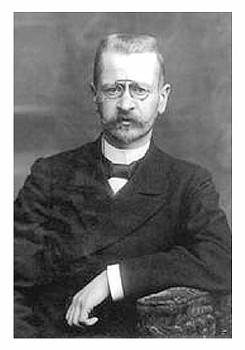|
- - - -
Leo Petrazhitsky
Petrazhitsky Leo Iosifovich (13 (25) .4.1867-15.5.1931)
Law theorist, sociologist, philosopher. Founder of the Petrazhitsky Leo Iosifovich (13 (25) .4.1867-15.5.1931)
Law theorist, sociologist, philosopher. Founder of the psychological school of law; his name is associated with the appearance of sociology of law.
He was born in the family estate Kollontaevo, Vitebsk province. He graduated from high school in Vitebsk, Law Faculty of Kiev University (1890).He trained at Berlin University, then in Heidelberg, Paris and London. From 1896 he taught at Kiev University, from 1897 - at St. Petersburg University, where he held the chair of encyclopedias and philosophy of law at the Law Faculty until 1917 and headed the student's circle of Philosophy of Law which brought up the major Russian social scientists - P. Sorokin, G. Gurvich, N. Timashev, N. Kondratiev and others. He had a degree of Dr.of Roman Law (1897).He was a member of the International Academy of Comparative Law (The Hague), Polish Academy of Art in Krakow (1912).He was the vice-president of the International Sociological Institute in Paris (1925), one of the founders and leaders of the Constitutional Democratic Party, member of the first State Duma. In 1918 he emigrated to Poland, where he was mainly engaged in sociology. In 1919 the sociology department was created specially for him at Warsaw University, which was headed by him for life.
His first large scientific works were devoted to issues of civil rights. His studies became a phenomenon of legal thought at the end of XIX century, a great contribution to the development of civics science of that time. He created his own system of transformation dogmas of Roman law in the "live" rules of civil law of the era of industrial capitalism. Two monographs published in Germany made him wide-known in legal circles, and then were used to compile German civil code. He was one of the founders and most prominent representatives of the psychological school of law, which had great influence on the development of legal science of the first half of XX century. Its representatives regarded right as a product of psychological attitudes (emotions) of individuals or social groups. He subjected to the terms of that the foundation of law and the driving source of its development is human psychology.He considered the development of the policy of right as a set of measures designed to assist pointedly the consolidation of "legal" in the psyche and human behaviour the most important goal of legal science. His ideas, in particular the theory of "emotional psychology", in 1920-1930-ies influenced the legal and sociological thought in Europe and the USA. In the USSR, his ideas were used in the study of "revolutionary subconsciousness".

© National Academy of Sciences of Belarus, 2011
|
|


